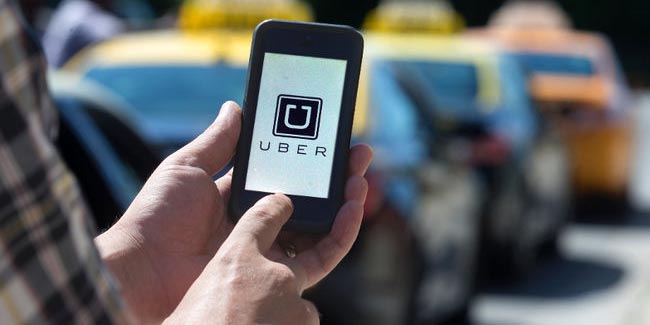Uber caught in the camera eye again

Uber, the popular ride-sharing application, has been in a long-term battle with city council to be accepted as a legal business in London.
Eighteen months ago, Uber moved its services into London with little care for the taxi by-laws that the city has in place. They have been in a battle with city council for the duration of their stay in London as they try to convince city council that their service should be allowed to operate legally as is.
City council has a different stance on the subject; won by a narrow vote of 7-6, city council has approved to create a by-law that requires all Uber drivers to install cameras in their vehicles in order to be able to legally operate in London. The by-law will be reviewed later this week. If the by-law is approved, London will be the first city in the world to require the ride sharing app to install cameras in their vehicles. Uber has no intention to pay for the installation of cameras for every one of its London drivers. As a response to the decision, Uber has issued a statement to the London city council threatening to leave the London market if the by-laws are put into motion.
Also, as an effort to gain public support, Uber is asking London citizens to sign a petition to help deter the decision the city council has made.
Uber has historically kept their word when threatening to leave certain markets. In December 2015, Uber suspended its services in Calgary when a judge ruled that they were not allowed to operate legally until they meet safety, insurance and regulatory requirements imposed by the city council.
An Uber driver, who prefers to remain anonymous, is worried about the future of the popular application.
“I think that for a lot of casual drivers like me, who only drive about one day a week, [installing cameras] might be enough for us to not drive anymore if the cost ends up on us,” they said. “I’m all about safety, and I’ve actually been looking for a dash cam for myself, but if it’s a specialized piece of equipment I have to pay for, then suddenly a weekend hobby turns into a big expense.”
Uber has also expressed their feelings about having to pay for the costs of the cameras for the more than 1,000 drivers in the Forest City. In a quote taken from CBC News, Susie Heath, the spokesperson for Uber Canada, shed some insight on why Uber doesn’t want to pay the costs of cameras for its drivers.
“Drivers typically [drive for us] on a short-term basis,” Health said, adding that drivers typically drive a few days a week or month. “As a result of this flexibility, it wouldn’t be practical for us to provide them with physical assets that would have to be delivered or returned when drivers . . . came off the platform.”
Uber has long been questioned about the safety of its service, which sparked the debate of installing the cameras in Uber vehicles. Last year in late December, a 41-year-old Uber driver named Islam Soliman had been charged with sexual assault on a 21-year-old woman, while she was using the popular ride sharing app. This is just one of the cases of sexual assault that occurred in an Uber.
Jeremy Kelso, a business student at Fanshawe College, shared his opinion on the subject.
“I would have to say I think [the cameras are] in the best interest of both the driver and the passengers, it offers a little bit more security for those in the car, and in the worst case scenario it offers proof of what happened rather than just a he said she said type of problem.”
With all the new decisions being made about the ride-sharing tech giant, there is one thing for certain: Uber is caught in the camera eye once again.














